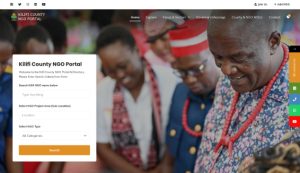Communicable and Non-Communicable Diseases Division
The Communicable and Non-Communicable Diseases Division is dedicated to the prevention, control, and management of diseases within Kilifi County. This division plays a crucial role in safeguarding the health of the population by addressing both infectious diseases that can spread from person to person and chronic conditions that require long-term care and management.
Key Roles
Disease Surveillance and Response
Monitoring and Detection
The division conducts regular surveillance to detect outbreaks of communicable diseases early. This includes monitoring disease trends and collecting data from healthcare facilities to identify potential public health threats.
Rapid Response Teams
In case of an outbreak, the division mobilizes rapid response teams to contain the spread of the disease. These teams are equipped with the necessary resources and expertise to manage outbreaks effectively.
Immunization Programs
Vaccination Campaigns
The division implements immunization programs targeting vaccine-preventable diseases such as measles, polio, and hepatitis. These programs are crucial in reducing the incidence of communicable diseases and protecting vulnerable populations, especially children.
Community Outreach
Through community health workers and outreach programs, the division ensures that immunization services are accessible even in remote areas, thereby improving overall vaccination coverage in the county.
HIV/AIDS and Tuberculosis (TB) Control:
Testing and Treatment
The division provides comprehensive services for the prevention, testing, and treatment of HIV/AIDS and TB. This includes offering antiretroviral therapy (ART) and directly observed treatment, short-course (DOTS) for TB patients.
Awareness and Education
The division conducts campaigns to raise awareness about HIV/AIDS and TB, emphasizing the importance of early detection, treatment adherence, and reducing stigma associated with these conditions.
Non-Communicable Diseases (NCDs) Management
Chronic Disease Care
The division focuses on the prevention and management of NCDs such as diabetes, hypertension, cardiovascular diseases, and cancer. This includes providing screening services, promoting healthy lifestyles, and offering specialized care for those affected.
Lifestyle Interventions
Programs are implemented to educate the public on the importance of a balanced diet, regular exercise, and avoiding risk factors such as tobacco and alcohol use to prevent NCDs.
Malaria Control
Vector Control
The division conducts interventions to control the mosquito population, such as distributing insecticide-treated nets (ITNs) and indoor residual spraying (IRS). These efforts are crucial in reducing the incidence of malaria in high-risk areas.
Treatment and Prevention
The division provides access to effective malaria treatment and promotes the use of preventive measures, especially among pregnant women and children under five, who are most vulnerable to malaria.
Health Education and Promotion
Community Engagement
The division engages communities through health education programs that promote awareness about communicable and non-communicable diseases. These programs are designed to empower individuals with the knowledge to protect themselves and their families.
Behavior Change Communication
Initiatives aimed at encouraging behavior change, such as improved sanitation, proper hygiene practices, and regular health check-ups, are key components of the division’s strategy to prevent disease transmission and manage NCDs.
Partnerships and Collaboration
Intersectoral Collaboration
The division works closely with various stakeholders, including government agencies, non-governmental organizations (NGOs), and international partners like USAID and UNICEF, to implement disease control programs effectively.
Research and Innovation
Collaborating with research institutions, the division supports studies aimed at improving disease prevention and control strategies, particularly in understanding local disease patterns and developing targeted interventions.
Monitoring and Evaluation
Data-Driven Decision Making
The division utilizes data from its surveillance systems to evaluate the effectiveness of its programs and to guide future interventions. Continuous monitoring ensures that the division can adapt its strategies to emerging health challenges.
Ongoing Initiatives
Scaling Up HIV/TB Integration Services
Efforts are underway to integrate HIV and TB services more effectively to ensure comprehensive care for co-infected individuals.
Expansion of NCD Clinics
The division is expanding the availability of specialized clinics for managing chronic diseases, making these services more accessible to residents across Kilifi County.
Community-Based Malaria Prevention Programs
New community-led initiatives are being implemented to strengthen malaria prevention efforts in endemic areas, with a focus on increasing the use of ITNs and promoting prompt treatment-seeking behavior.
The Communicable and Non-Communicable Diseases Division is committed to reducing the burden of diseases in Kilifi County through a combination of preventive measures, effective treatment, and community engagement. By addressing both infectious diseases and chronic health conditions, this division plays a vital role in improving the overall health and well-being of the population.








